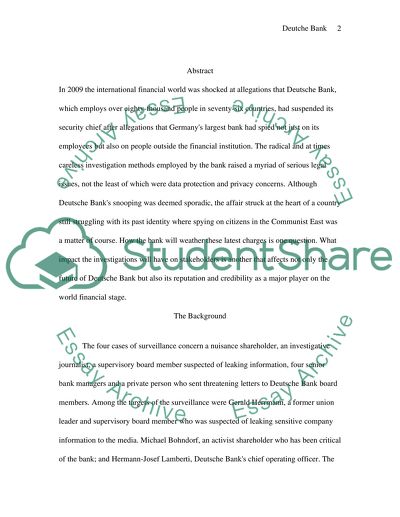Cite this document
(Deutsche Bank Spy Scandal Case Study Example | Topics and Well Written Essays - 1750 words, n.d.)
Deutsche Bank Spy Scandal Case Study Example | Topics and Well Written Essays - 1750 words. Retrieved from https://studentshare.org/finance-accounting/1564492-deutsche-bank-spying-affaire
Deutsche Bank Spy Scandal Case Study Example | Topics and Well Written Essays - 1750 words. Retrieved from https://studentshare.org/finance-accounting/1564492-deutsche-bank-spying-affaire
(Deutsche Bank Spy Scandal Case Study Example | Topics and Well Written Essays - 1750 Words)
Deutsche Bank Spy Scandal Case Study Example | Topics and Well Written Essays - 1750 Words. https://studentshare.org/finance-accounting/1564492-deutsche-bank-spying-affaire.
Deutsche Bank Spy Scandal Case Study Example | Topics and Well Written Essays - 1750 Words. https://studentshare.org/finance-accounting/1564492-deutsche-bank-spying-affaire.
“Deutsche Bank Spy Scandal Case Study Example | Topics and Well Written Essays - 1750 Words”. https://studentshare.org/finance-accounting/1564492-deutsche-bank-spying-affaire.


